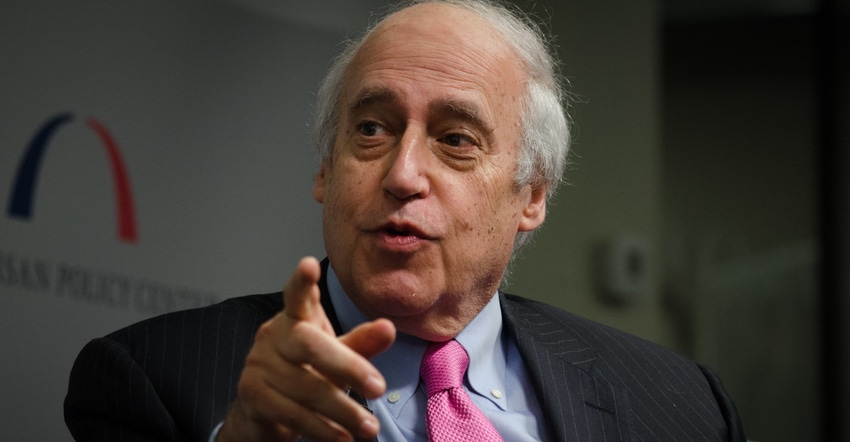
In the short term, COVID has been nothing short of a disaster for the country and for agriculture and the food supply. While scientists are working to examine its origins, causes and impacts on human and animal health, research into zoonotic diseases must be a much higher short-term priority, according to former Secretary of Agriculture Dan Glickman.
During a Senate Agriculture Committee hearing on agricultural research, Glickman testified that COVID is another example of an animal disease that jumped to the human side. He says, “As we look at viral-related diseases, we need to dramatically increase the focus on this. This is going to happen again and again.”
It is estimated that 70% of all human viruses come from animals. The cost of COVID and other diseases, many yet to be discovered, has been monumental for agriculture workers, businesses, the frightening increase in domestic hunger and the entire food supply.
Glickman says a concerted national effort, perhaps led by the agriculture research community, is desperately needed. The National Bio and Agro-defense Facility, located at Kansas State University, could be a leading player in this area.
“In all of our discussion on COVID, there’s virtually no discussion about the relationship between food, agriculture and health and all relate to each other,” Glickman says. “I hope the future of White House looks at a whole governance approach and include discussions in the human health field because they relate to each other.”
During a Farm Foundation forum just a few days later, Glickman again discussed the lack of research in zoonotic diseases that could impact humans and animals. With COVID taking more than 300,000 lives, he questions whether we can invest in additional research dollars over the next four years to prevent or anticipate those next asteroids that could hit in the future.
The role of USDA
Glickman suggests the next secretary of agriculture should make sure USDA has an “assertive, positive role” in terms of disease response from handling operational actions to where to focus research dollars. Ebola and SARs are two recent viruses that also jumped from animals to humans. He suggests sitting down with the research establishment at USDA and around the country, including land grant universities, and determine what can be done to protect ourselves from the next pandemic. “People need to be talking to each other more.”
During the Senate hearing, Stephen Higgs, associate vice president for research director at Kansas State’s Biosecurity Research Institute, says the SARS-CoV-2 pandemic revealed glaring deficiencies in America’s “field to fork” food supply chain. Specifically, long-ignored warnings came true for meatpacking plants alerted for years about the potential detrimental impact that a human pandemic could have on their abilities to operation.
“Interestingly, it suggested that many of these companies were, in fact, prepared a decade ago, but their preparation waned when swine flu, H1N1, proved to be much less problematic than predicted,” Higgs says. “After that, they saw no need to stockpile masks or other biosafety materials when they had not needed them for H1N1.”
Higgs adds, “SARS-CoV-2 proved that thinking to be totally wrong and the companies – along with America and the world – paid the price. Processing plants closed, workers died, animals ready for market were culled, milk was dumped, etc. The outcomes were horrendous,” he testifies.
Most recently, a $1 million USDA SARS-CoV-2 grant was awarded to K-State researchers focused on safeguarding meat processing and food service. Work has just begun in the Biosecurity Research Institute at Pat Roberts Hall. “The importance is obvious based on the dire consequences SARS-CoV-2 has had on meat processing plants across the nation,” Higgs adds.
Glickman says agriculture also continues to make its case for increased research spending. The real amount of spending has not gone up for agriculture as it has for the National Institute of Health or the Pentagon, as many don’t realize the value of ag research on an every day basis. “We need to continue to tell the story of how important it is,” Glickman says.
About the Author(s)
You May Also Like






